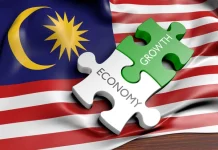By Amarjeet Singh, EY Asean and Malaysia Tax Leader
On June 5, the Prime Minister unveiled the Short-Term Economic Recovery Plan (“Plan”). This Plan was unveiled against the backdrop of a pessimistic global economic outlook and a steep decline in Malaysia’s economic growth projections for 2020, from 4.8 percent to -2 percent to 0.5 percent.
The RM35 billion Plan was developed around the broad themes of empowering people, propelling businesses and stimulating the economy.
Addressing the now
The PRIHATIN Economic Stimulus Packages announced in March and April 2020 helped to preserve over 2.4 million jobs and maintain a relatively low unemployment rate (projected at 5.5 percent for 2020). The Packages also eased cashflow concerns for around 11 million Malaysians from the B40 and M40 groups as well as provided financial relief to businesses, particularly the SMEs.
In today’s announcement, it is comforting to see the continuation of the measures to support SMEs and the rakyat, especially the vulnerable groups and the B40. These include the extension of the Wage Subsidy Scheme, increased allocation to the PEKA B40 Healthcare Support and an additional RM2 billion for subsidized SME financing. New initiatives include RM1.5 billion in funding for Hiring and Training Assistance for Businesses and the RM2 billion Reskilling and Upskilling Programmes.
Focusing on the next and the beyond
Covid-19 has accelerated the need for digital transformation. To facilitate and support this, the Government has now introduced various initiatives and measures, including the Micros and SMEs E-commerce Campaign, matching grants and loans for technical and digital adoption, the MyAssist SME One Stop Shop (an online business advisory platform), and the Technology Innovation Sandbox.
The Government is also accelerating the digitalization of its services in areas such as stamp duty and unclaimed monies matters. It is hoped that this is the beginning of a move to substantially increase the use of technology by the Government in interactions with the public and the delivery of services in the new normal.
There are also various measures aimed at encouraging local entrepreneurship and promoting investments. For the SMEs, measures have been introduced to spur the setting-up of new businesses, i.e. income tax rebate of RM20,000 per year for the first three (3) years and stamp duty exemption for mergers and acquisitions. At the other end of the spectrum, generous incentives were announced to encourage foreign investors to relocate large operations to Malaysia.
These include a full tax exemption for 10 or 15 years and investment tax allowances for investments meeting minimum capital investments. There will also be a Special Reinvestment Allowance from YA2020 to YA2021 for manufacturing and selected agriculture activities. When formalizing the relevant incentives, the Government should also consider home-grown companies which are looking to reinvest.
Combined with our world-class infrastructure network, connectivity and multilingual talent pool, these incentives will position Malaysia as one of the most competitive countries in ASEAN for Foreign Direct Investments (FDIs). The Government’s promise of greater efficiency, for example the issuance of manufacturing licenses for non-sensitive industries within two (2) days, will also boost investor confidence.
The above incentives focus on capital-intensive investments. In line with the push towards digitalisation, it is also important for the Government to consider incentives for non-capital intensive businesses that also generate significant economic benefits through local spending, the creation of high level jobs and/or the development or use of cutting-edge technology.
The Government has also introduced a “Buy Malaysia” campaign. As part of this campaign, big supermarket chains will be required to tag Malaysian products, and dedicated Malaysian product channels will be introduced on major digital platforms. Further, the Government will co-fund digital discount vouchers to encourage online purchases from local retailers.
Overall, the Short-Term Economic Recovery Plan focuses on the right priorities – saving jobs and preserving business continuity, digitalization, encouraging high-value investments and further improving Government efficiency.









